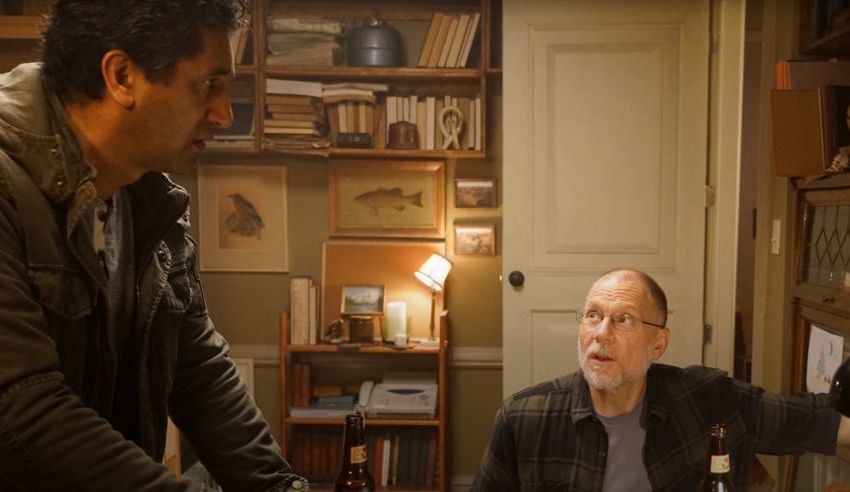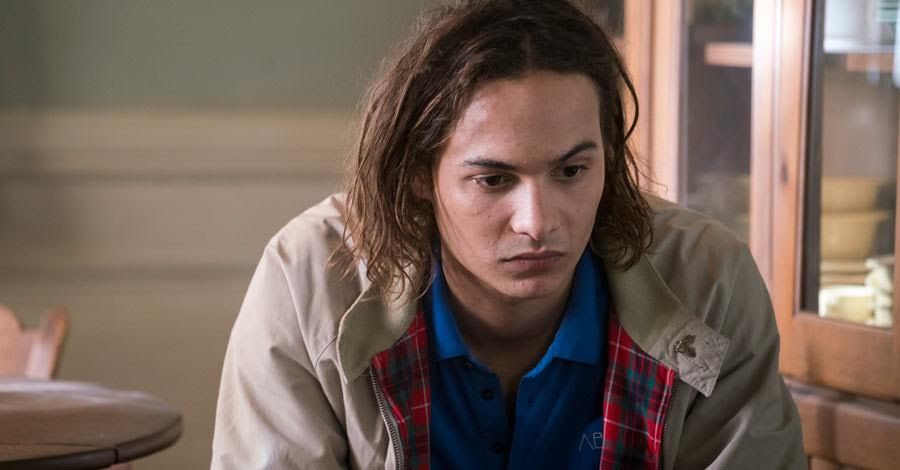If comments sections and social media are any indication, it seems that critics are digging the second season of "Fear the Walking Dead" a lot more than fans. Fair enough. Most folks complain how, at this point, the timeline of the show has more or less caught up to where "The Walking Dead" was at when it started, creating a series of scenarios we've already seen. That's a valid point. But for me, the maritime setting gives the show an edge not always seen in zombie fiction. I also appreciate that the series still values tight-knit character drama over constant survival-horror action. If you prefer the opposite ratio though, it's understandable why "Fear" wouldn't be your cup of tea.
But I don't grow tired of these tropes -- not all of them, at least -- as long as they're well executed through grounded acting and direction. Take tonight's story for example. After realizing San Diego has been torched and the boat who gunned down the vessels from last week probably belongs to the military, the Clarks, Manawas, Salazars, and Strand head towards an island where someone is signaling them with a flashing light. Once they reach shore, they meet the Gearys, a family of survivalists who invite Madison and Travis into their home.
Once again, we've seen this before. The group-of-pleasant-strangers-with-a-dark-secret scenario comes straight from the Zombie Fiction 101 handbook. From the moment we meet the Gearys, and even before it with the light that looks like a distress call, we know that not everything is as peaceful as it seems. That the patriarch, George, is planning for his family to all commit suicide once terror inevitably invades their peaceful home isn't even close to being a surprise. But where the morbid outcome is predictable, the journey isn't. Because George is a ranger on the island and has a genuine appreciation for the power of nature, his conversation with Travis feels like its own self-contained, two-man chamber play.
As George explains, he believes that the zombie outbreak is the planet's way of saving itself, or at least a reminder that man isn't as powerful as he thinks. That's a fascinating, non-panicked outlook that we haven't seen in this type of story, at least not that I can remember. Maybe in something like "The Road," but never "The Walking Dead." Even though we've met plenty of fatalistic suicide-pact survivors, we haven't met one with quite so much humility and respect for the bigger picture, morbid as George's outlook and eventual actions are. Back on the boat, Nick and Alicia have a similar talk as they realize that the apocalypse eradicated the problem of climate change in one fell swoop.
Of course, the story gradually picks up a little speed and everything with the Gearys goes south. George's daughter accidentally discovers his fatal stash of pills and takes one far earlier than he ever intended, prompting the Clarks to honor the mother's request of trying to save their other small child (it was Mom flashing the light as cry for help). But even when the action escalates, even when the mom becomes a walker and George's oldest son takes back his brother from our heroes at gunpoint, it's still the planetary themes that resonate most. It's still the slow-burn dialogue that sticks in my craw. Human beings were insignificant even before the undead overtook the Earth, and if "Fear the Walking Dead" was more focused on badass fight scenes than quiet character drama, I don't think the series would have come to such an unusually rich theme.



